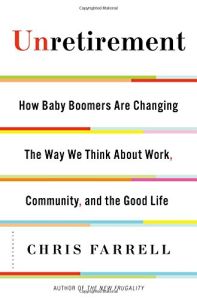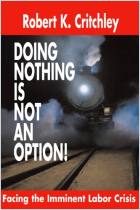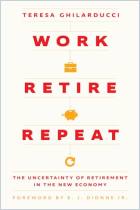加入 getAbstract 阅读摘要

加入 getAbstract 阅读摘要
Chris Farrell
Unretirement
How Baby Boomers Are Changing the Way We Think About Work, Community, and the Good Life
Bloomsbury, 2014
看看什么内容?
Don’t believe the “retirement crisis” hype. Older workers are transforming the US economy.
Recommendation
Will retiring baby boomers bankrupt Social Security and Medicare? Are millions headed for a disastrous retirement with inadequate savings? Economics writer Chris Farrell thinks not. In this engaging, optimistic report, he shows that US workers are staying on the job longer – which fuels growth and infuses the economy with “entrepreneurial energy.” With powerful stories of people who reinvented their careers in their 60s and 70s, Farrell shows how older workers are transforming their lives and the workplace. He deals briefly with the plight of low-wage workers and argues for policies to strengthen their safety net. Farrell’s insights about “unretirement” are a refreshing change from the usual predictions of a Social Security meltdown and a “retirement crisis.” getAbstract recommends his reportage and suggestions to policymakers, human resources directors and those on the cusp of what perhaps should no longer be called the “retirement years.”
Summary
About the Author
Chris Farrell, author of The New Frugality, reports on economics for American Public Media’s Marketplace. He is a contributing editor of Bloomberg Businessweek and a commentator for Minnesota Public Radio.



















Comment on this summary
The book is strongly embedded in the US context. Some expressions really require explanation (401 (k)).
It is not very useful to take away the trivial: "unretirement means different things to different people".